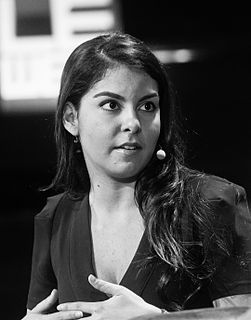A Quote by David Cohen
When fundraising, your network is critical. Leveraging it early and often is the key. Don't make the mistake of waiting until you need money to engage sources of capital.
Related Quotes
God would love to piece together the shattered fragments of your life. But He is waiting ... graciously waiting until the time is right. Until you are tired of the life you are living ... until you see it for what it really is. Until you are weary of coping ... of taking charge of your own life ... until you realize the mess you are making of it. Until you recognize your need for Him ... He's waiting.
Probably the biggest mistake that I made personally is I knew early on that I wanted to go into start-ups and creating kind of software that could help change the lives of millions of people. And basically what I did is I kind of went, okay, well, I need a set of titles and I need a checklist of skills, and I ran through all that, and that wasn't a useless thing, but what I didn't realize, and, you know, and no one gave me the right advice for doing this, is that actually your network, in essentially, is your career.
How many of the unicorn companies are really prosaic businesses - like limousine services or renting rooms in your house? The original VC firms from the '70's made their money and established the reputation of their respective brands by leveraging big cleverness with small capital, not small cleverness with big capital, and that's what's going on with these unicorns. That has never worked and it won't work this time. It doesn't produce venture quality returns, and it never will.
One of the key skills you'll need to bring change to the world will really test your creativity, as well as your sanity, your patience, and your resolve. It has to do with how to take your dream and make it as real as possible. It doesn't really matter what your dream is, "going big" means doing it to the utmost. To do that, you need one thing: other dreamers to share your dream. If you learn to make your dream a team effort, you'll find the key to growing big.
Start with the least amount of money possible. Some people say they need a certain amount to start, and I say you need a half of that or a third of that. That gives you the biggest return. If you put all your eggs in one basket, it's harder to adapt when you need to. Unless it's very capital-intensive, you don't need much money.
Obviously, consideration of costs is key, including opportunity costs. Of course capital isn't free. It's easy to figure out your cost of borrowing, but theorists went bonkers on the cost of equity capital. They say that if you're generating a 100% return on capital, then you shouldn't invest in something that generates an 80% return on capital. It's crazy.
We're all sinking in the same boat here. We're all bored and desperate and waiting for something to happen. Waiting for life to get better. Waiting for things to change. Waiting for that one person to finally notice us. We're all waiting. But we also need to realize that we all have the power to make those changes for ourselves.
The critical thing about the design process is to identify your scarcest resource. Despite what you may think, that very often is not money. For example, in a NASA moon shot, money is abundant but lightness is scarce; every ounce of weight requires tons of material below. On the design of a beach vacation home, the limitation may be your ocean-front footage. You have to make sure your whole team understands what scarce resource you're optimizing.
What people don't understand is that the underground that existed was created in the early 80s and was thriving throughout the 80s. Until the industry showed up it was a pretty significant network. It was all happening, but the smell of money had not wafted up high enough for the industry. It wasn't really until they came descending on Seattle that things really got out of control.
Instead of waiting until crisis problems develop which result in panic praying for others, we need to trust God to protect them as we pray Spirit-led, thoughtful, caring prayers before the problems overwhelm them, and they are unable to cope. We need to engage in major battles, not just minor skirmishes, moving from surface praying to in-depth praying. We need to pray both defensively and offensively.
I think the money for the solutions for global poverty is on Wall Street. Wall Street allocates capital. And we need to get capital to the ideas that are successful, whether it's microfinance, whether it's through financial literacy programs, Wall Street can be the engine that makes capital get to the people who need it.

































